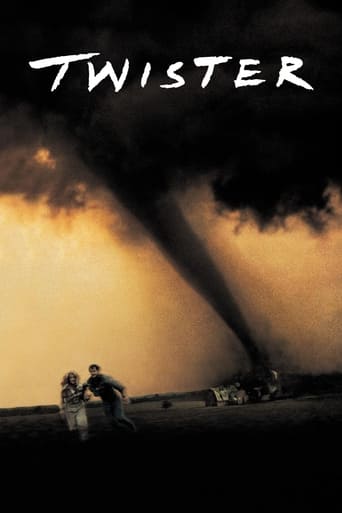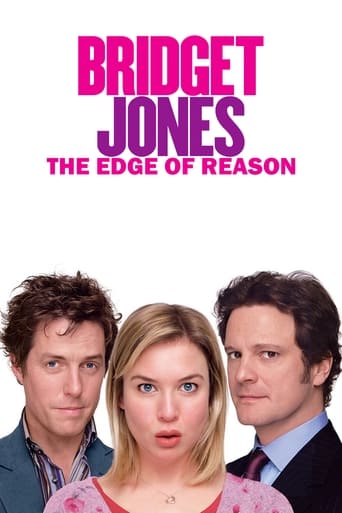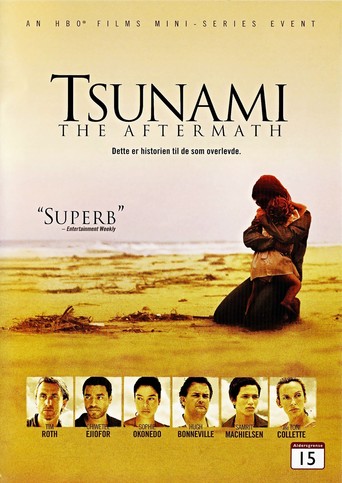

Tsunami: The Aftermath (2006)
Inspired by true accounts, this HBO miniseries focuses on a group of fictional characters caught up in the harrowing aftermath of the tsunami that devastated the coast of Thailand two years ago.
Watch Trailer
Cast
Similar titles

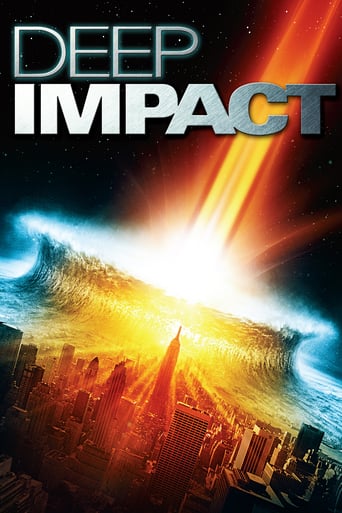


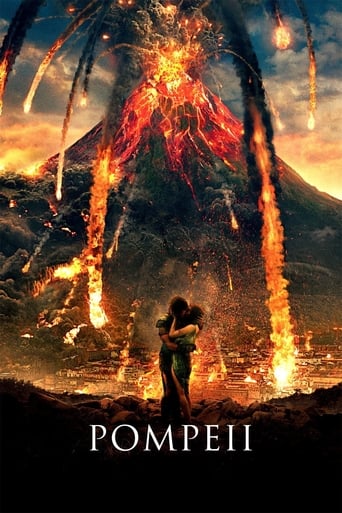
Reviews
It's no definitive masterpiece but it's damn close.
Beautiful, moving film.
The film's masterful storytelling did its job. The message was clear. No need to overdo.
This is a dark and sometimes deeply uncomfortable drama
This was an awful load of old rubbish. Most of the acting was painful to watch, the characters unbelievable and unsympathetic with the possible exception of the British Consul or whatever he was. Were we supposed to feel sympathy for Mrs Peabody and her awful droning on and on about her son's leg. He lost a leg, 300,000 people lost their lives!!! and she wanted a medevac arranged just for him !!! I kept watching until the end to see if the story ran true to what I would have expected from this calibre of programme, and the 6 year old British girl be miraculously found. OK, it didn't run true to form!. I would also hope that the person who played Ellen Webb now realises she has no future in acting. Shame on the BBC for being a party to this rubbish. And shame on me for watching it until the end.
It is television after all so I kept waiting for the good news. Where was it? Certainly in this story of massive human suffering there has to be some good news. Okay... I'll give the producer/director/writer some leeway in that they wanted to tell a story about the Tsunami for a western audience so that probably accounts for the seemingly bizarre absence of any Thai person of note in the movie with the exception of hard working kitchen staff boy. Thank god for the western NGO worker to help those poor villagers who had fled to the hills . . . and then the Brits who came to the aid of the villagers. I am living in Thailand now and find that the Thai are quite capable (despite a bizarre bloodless coup of a freely elected Prime Minister to restore democracy?) of doing some really good things.. and doing quite a bit for themselves. There was an attempt to show the difference in response to this disaster on the part of the Thai (why it was o.k. for them to burn bodies w/o identification). But.. please.. where was the good news in this movie?
I'm sure the decision to do a mini-series(?) on the 2006 tsunami was not an easy one to make. In all fairness, I can't imagine any fictionalized account of a major disaster like this one not being inadequate in trying to examine what really happened. Although this wasn't as thoroughly offensive as Titanic (you can stop reading here if you're a big fan of that film), where the deaths of hundreds pale as compared to the lives of two fictional teenagers, this film falls far short of giving the dead their just do. Most bothersome of all, the film feels unfocused and uninspired...perhaps the project should have been given to someone with a real point of view...or better still shouldn't have been done at all. The actors give it their best, although truthfully most of it never rises above the level of soap opera. Every time a storyline pokes it's head out of the water it gets carried off in the undertow. Tasteful? Yes. Interesting? Sorry, Discovery Channel could do better in one third the time. Ultimately I found it surprisingly insignificant...this is not HBO, it's TV.
The problem with making a film about a well-known disaster is that the obvious line of dramatic development is precluded precisely because everyone knows it before the film starts. In 'Titanic', James Cameron spun a tale about the spirit of the age, which he bound up with the famous event at the heart of the film; but 'Tsumami: the Aftermath' tries no such tricks, and sells us a straightforward catalogue of human misery and suffering. It's all very earnest, and unclear what the point is supposed to be. Countless survivors (with missing relatives) are shown responding with a mixture of dignity and disbelief in reality. This may be one response to tragedy, but it's not the only one, and in this film appears to be celebrated as the highest expression of the human condition: epitomised when one man stands up at a public meeting and is applauded for his heartfelt but impossible demand that his (dead) child is returned to him. Liekwise, the film stresses a view that those on the scene in a non-personal capacity needed to emotionally empathise with the feelings of the suffering, whereas one could argue that, when it comes to the rationing of limited resources, one actually needs officials who can be completely dispassionate, and who can turn down the heart-rending (and conventionally justified) demands of those who cry loudest to meet instead the needs of those with even greater need. Finally, there is a political sub-plot, but this is presented more as a means to the redemption of a cynical journalist (who, as you might have guessed, learns to care) than as an end in itself.The review may sound pretty cynical in itself, and I don't want to belittle the appalling human suffering of the real life tragedy in any way. But this film's obsession with dignified emoting puts a very strange spin on the human condition.





